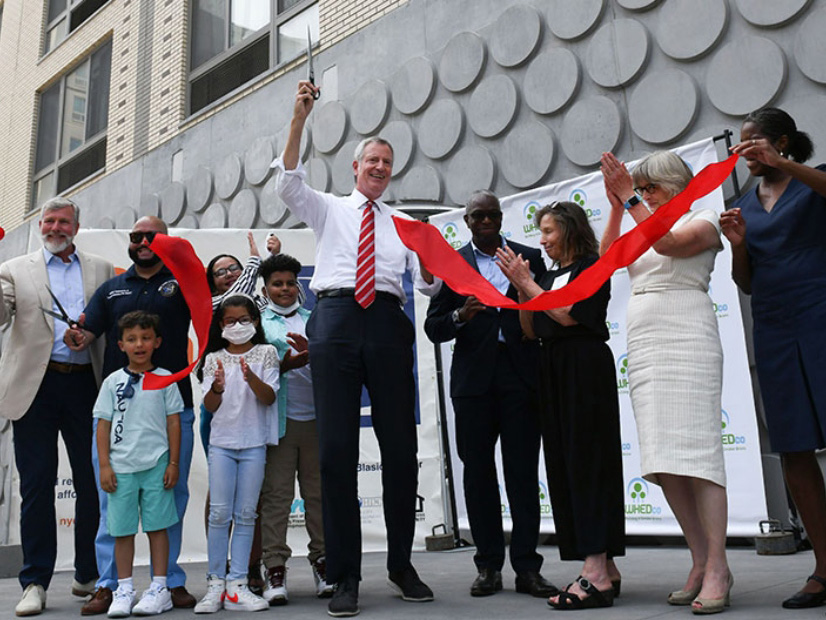
A new trial program in New York City will cover the cost of electrification projects for affordable housing owners starting this fall, with the aim of making the electric transition more accessible and tangible for older buildings in the city.
The $24 million in funding will help upgrade 1,200 housing units, reaching about 3,000 residents, according to New York Gov. Kathy Hochul’s office.
The New York State Energy Research and Development Authority (NYSERDA) is partnering with the city’s Department of Housing Preservation and Development (HPD) to provide the funding from its $5.3 billion clean energy fund, meaning less administrative work for affordable housing owners who want to retrofit their properties.
Previously, building owners had to seek funding separately from different agencies, slowing electrification progress in the city. Now, funding will go directly to project developers to electrify buildings regulated by the HPD.
NYSERDA also will fund a technical assistance provider position to help program participants and HPD with electrification upgrades.
When building owners apply for clean and renewable energy financing, the new program will provide gap funding to cover the cost of incremental retrofits, such as transitioning fossil fuel-based heating and cooling to electric heat pumps, improving building envelopes and refining hot water distribution.
“For a long time, we’ve seen aging portfolios of affordable housing that are functioning on an aging system,” Terri Belkas-Mitchell, principal of affordable housing developer Xenolith Partners, told NetZero Insider.
In July, Xenolith closed on funding for its new affordable senior housing project, Casa Celina in the Bronx, which just started the construction phase and which the developer plans to be a fully electric building. Many of Xenolith’s projects are in the city, and in Belkas-Mitchell’s experience, electric domestic hot water systems are typically the main hurdle.
Though the pilot funding project is for retrofitting existing buildings, Belkas-Mitchell said that with this additional funding allocation, HPD can begin to encourage a larger shift to electric hot water systems.
“It’s also encouraging to hear the process will be streamlined through HPD,” Belkas-Mitchell said.
It can be challenging for project developers to apply to different agencies with different timelines for funding distribution, but they “need all that money to get in the ground,” she said.
The partnership between NYSERDA and HPD will save developers time and money since they must pay attorneys to review the agreements with the different agencies.
“Through this partnership, we will demonstrate a simplified process for electrifying affordable housing, while developing replicable new retrofit approaches in order to reduce statewide emissions,” NYSERDA President and CEO Doreen Harris said in a statement.
Buildings are one of the largest sources of GHGs in New York City. In 2019, energy used by buildings and other stationary sources, such as natural gas distribution within the city, emitted about 37 million metric tons of carbon dioxide equivalent into the atmosphere, according to city data.
“There’s really widespread interest in the developer community for electrification,” Belkas-Mitchell said, even though electric domestic hot water systems “feel like uncharted waters.”
However, a drop in electricity costs might be necessary to persuade some building owners to make the switch, she said.
Applications for funding will be accepted until the end of 2024, or until funding runs out, according to the governor’s office.


